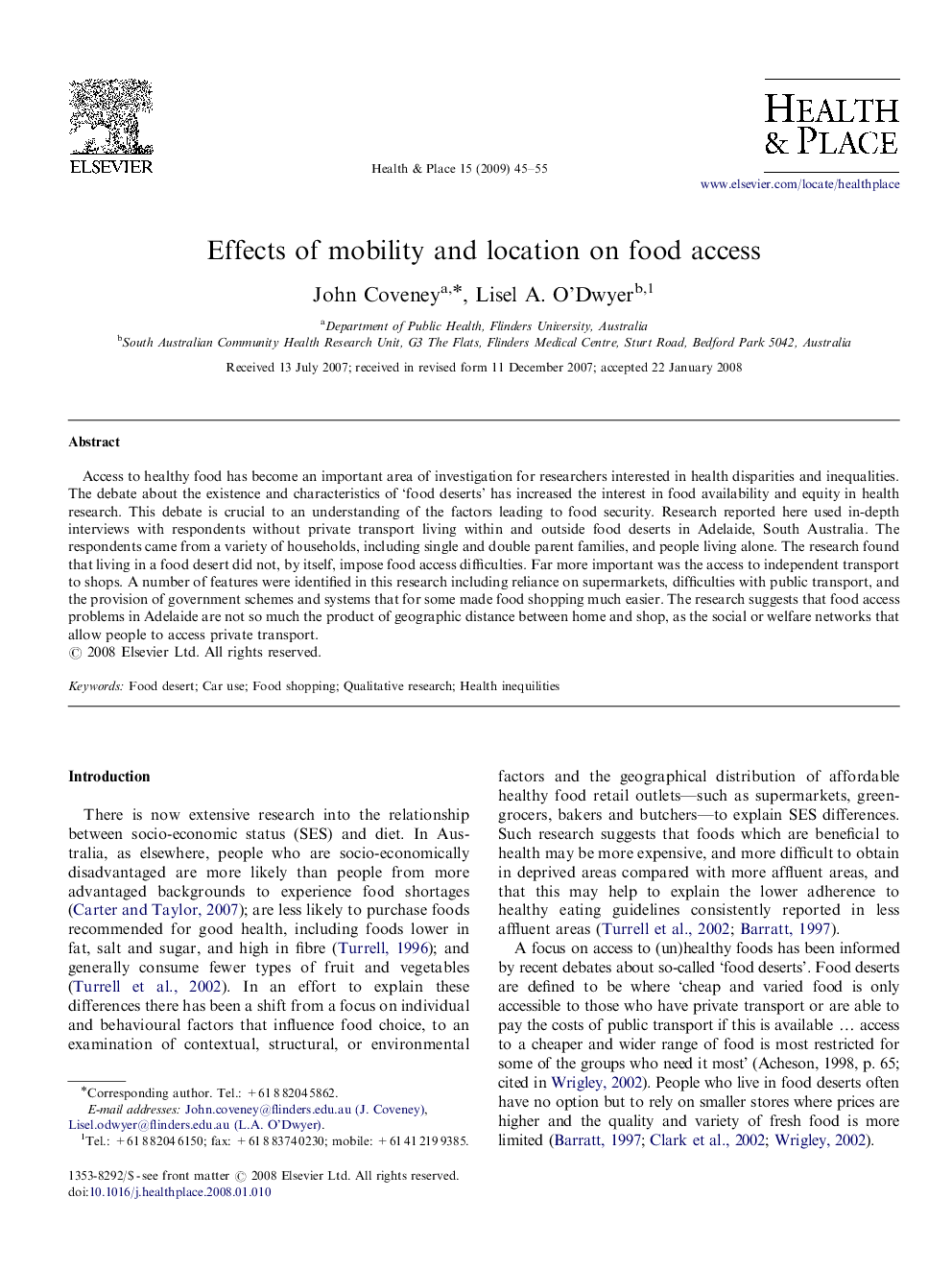| Article ID | Journal | Published Year | Pages | File Type |
|---|---|---|---|---|
| 10502946 | Health & Place | 2009 | 11 Pages |
Abstract
Access to healthy food has become an important area of investigation for researchers interested in health disparities and inequalities. The debate about the existence and characteristics of 'food deserts' has increased the interest in food availability and equity in health research. This debate is crucial to an understanding of the factors leading to food security. Research reported here used in-depth interviews with respondents without private transport living within and outside food deserts in Adelaide, South Australia. The respondents came from a variety of households, including single and double parent families, and people living alone. The research found that living in a food desert did not, by itself, impose food access difficulties. Far more important was the access to independent transport to shops. A number of features were identified in this research including reliance on supermarkets, difficulties with public transport, and the provision of government schemes and systems that for some made food shopping much easier. The research suggests that food access problems in Adelaide are not so much the product of geographic distance between home and shop, as the social or welfare networks that allow people to access private transport.
Related Topics
Health Sciences
Medicine and Dentistry
Public Health and Health Policy
Authors
John Coveney, Lisel A. O'Dwyer,
